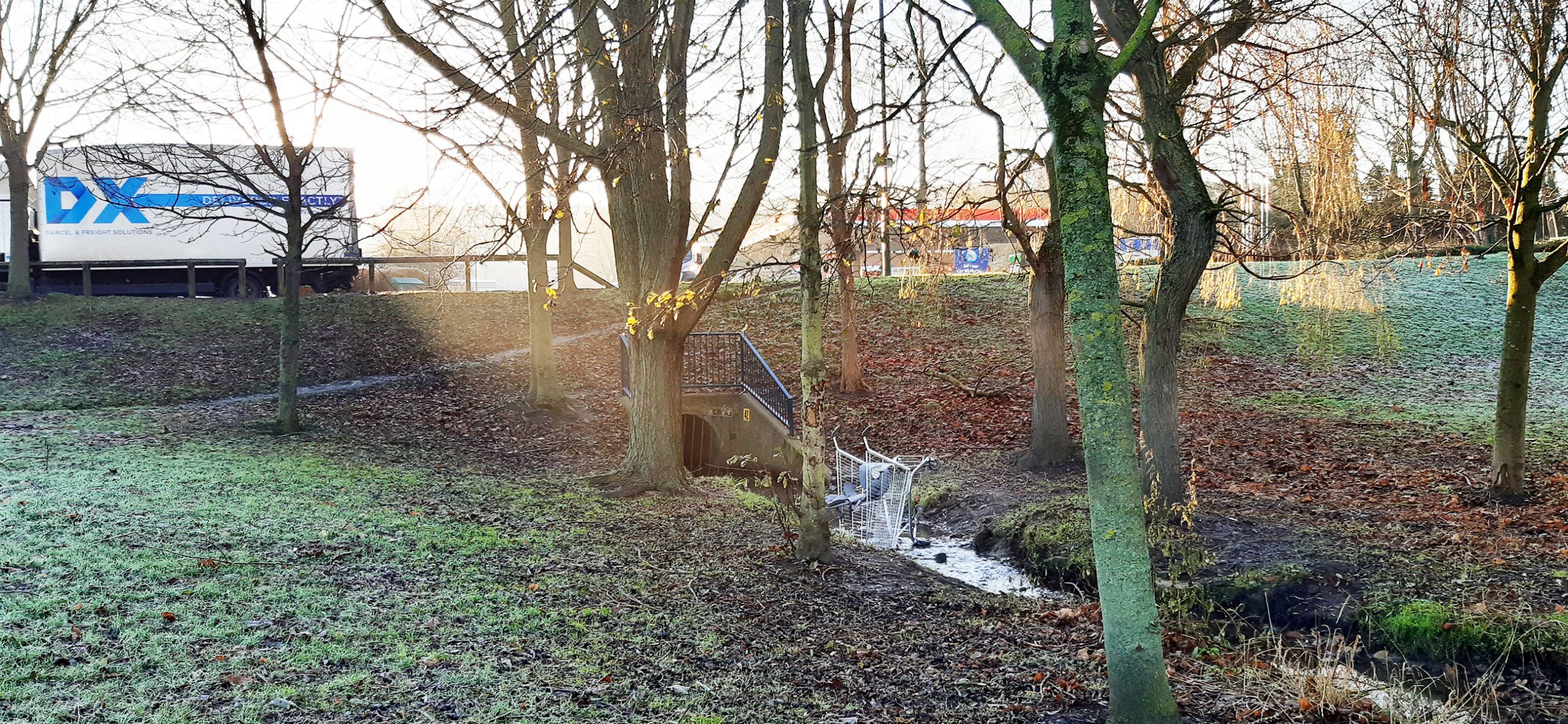BEST DESCRIPTION – ONE IMAGE PHOTO COMPETITION

Congratulations to Katie Lamb who won ‘Best Description’ with entry ‘Out of sight, out of mind.’
In order to become more circular, we all need to do our part. We all need to be more concise of the environment. We all need to change our behavioural habits. We all need to use items for longer. We all need to consider how to dispose of items we no longer need. We all need to take more care.
The circular economy at its core tries to combat these issues. A circular economy promotes re-use and recycling of materials required to make everyday products, and discourages single-use based materials, which are simply discarded or dumped somewhere and end up polluting our planet. By re-using and recycling everyday items, materials in global supply chains can be used for longer, demand on finite recourses can decrease, and the durability and longevity of these finite resources can be increased. The transition towards a circular economy is not easy, as there are endless waste streams to consider, endless materials and products we use in our everyday lives, and a massive behavioural change from everyone across the UK is needed.
I came across this image on a winter walk one day, where I saw a shopping trolley had been dumped in a local river, right next to a busy road and a retirement village. I saw this photo as very reflective of some of the issues we are currently tackling at the UKRI CircularChem Centre. Shopping trolleys themselves are very recyclable and durable, but only if used properly. In this case, this trolley had been carelessly and thoughtlessly dumped. With all the will in the world, you can create something that in principle is recyclable. But what if we mistreat it? What if we suddenly have no need for this material? How can we dispose of it without harming the environment? This image to me very simply represents the traditional “Out of sight, out of mind” attitude, that we have had towards our waste and everyday items for far too long. This trolley was also dumped in full view of retirement homes, in front of people who, with all the will in the world, would struggle to deal this waste, now dumped on their doorstep. Yet, we in the UK do this on a regular basis. We ship off waste to somewhere else and for someone less fortunate than us to deal with it. Out of sight, out of mind.
In my research, I am aiming to encourage the transition towards a circular economy in the UK. Lots of research is being done in creating and developing new pathways to re-use and create materials from waste. Lots of research is also underway to assess the sustainability of these new pathways, to ensure there are no unintended consequences if these pathways are employed on a large scale. One hurdle which is always tricky to overcome is a Government based hurdle. Every year, the UK Governments (in England, Wales, Scotland and Northern Ireland) set policies to help deal with everyday issues. Policies themselves are guidance documents, which detail how the public, government, business and industries (amongst others) should aim to reach a common goal. If policies are set without a clear logic, then policies themselves can cause more harm than good. New policies can also unintentionally prohibit innovative and sustainable technologies from reaching industrial scale in the UK.
My research is therefore predominantly focussed on developing current policies and setting new policies that will ensure a sustainable circular economy is implemented in the UK, particularly in the UK chemical sector. My research aims to ensure these policies do not have unintended consequences on the environment and people. My research also aims through teaching and learning, to inform governmental representatives on a chemistry level the difficulties faced when implementing a circular economy in the UK, and to also teach and inform the general public how and why their changes in behaviour will benefit themselves and the planet in the long run.
Policies can cause damage, especially if they encourage waste to simply be dumped or sent elsewhere to deal with, or allow for people to simply dump shopping trolleys in a natural lake. My research aims to remove this trolley from the lake, protect natural, and to allow people in the retirement home to retire in peaceful surroundings, that will be there not only for them, but for future generations to come.